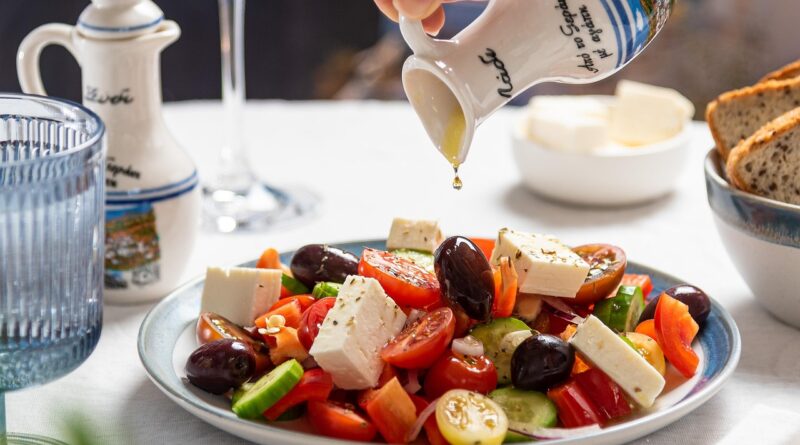Plant-based and Mediterranean Diets – The Secret to Healthy Ageing
A Personal Note from Across the Atlantic
When Sarah McConnell, a 67-year-old retired teacher from Portland, Oregon, recalls her 50s, she remembers aching joints, sluggish mornings, and a mounting dread of the future. “I thought I was destined for medications and hospital corridors,” she laughs, sipping her herbal tea. A decade ago, on the advice of her daughter, she switched from fast-food-heavy meals to a Mediterranean-inspired, largely plant-based diet. Today, she hikes every week, grows her own tomatoes, and swears that food—not supplements—has been her biggest elixir.
Sarah’s story echoes across continents. As populations age, the question is no longer just about living longer but living better. Plant-based diets and the famed Mediterranean Diets and their impact on healthy aging are emerging as the twin anchors of this conversation, offering evidence-backed pathways to vitality in later years.
Why Food is the First Pill in Ageing Gracefully?
Doctors and gerontologists often stress that aging is not a disease—it is a natural process. Yet, the speed and quality of that process are deeply influenced by diet. Unlike fad diets that rise and fall with social media trends, plant-based and Mediterranean eating patterns have endured, shaped by tradition, geography, and science.
Research spanning decades has shown that these diets reduce the risk of chronic diseases like cardiovascular ailments, diabetes, and cognitive decline. They are not about exclusion but balance—celebrating fresh vegetables, whole grains, legumes, olive oil, nuts, and moderate amounts of fish.
- Rich in antioxidants, these diets combat cellular damage that accelerates ageing.
- Healthy fats from olive oil and nuts protect the heart and joints.
- Fibre from whole grains and legumes keeps the digestive system efficient.
- Moderate wine consumption (particularly red) in the Mediterranean context supports cardiovascular health.
The Science of Staying Younger, Longer
Healthy ageing is no longer measured simply by wrinkles or energy levels. It is defined by metrics such as cognitive sharpness, bone density, heart health, and metabolic stability. Here is where the Mediterranean Diets and impact on healthy ageing becomes particularly crucial.
The synergy of nutrients in these diets appears to slow biological ageing markers. For instance, studies published in journals like Ageing Research Reviews note that individuals adhering closely to these dietary patterns have longer telomeres—the protective caps at the end of chromosomes, often considered a measure of cellular youth.
- Omega-3 fatty acids from fish reduce inflammation, a silent driver of ageing.
- Polyphenols in fruits and vegetables enhance brain plasticity and delay dementia.
- Plant proteins help maintain muscle mass, critical in preventing frailty.
- Calcium-rich greens and legumes reduce osteoporosis risk.
Lessons from the Blue Zones
Around the globe, pockets of communities known as “Blue Zones” show unusual longevity. From Sardinia in Italy to Ikaria in Greece, Okinawa in Japan to Loma Linda in California, centenarians live lives that researchers attribute largely to dietary habits.
These populations, while culturally diverse, share a common thread: plant-based or Mediterranean-like diets form the foundation of daily meals. Social connections and active lifestyles complement their plates, but the baseline is clear—food choices shape not only lifespan but also “healthspan.”
- Sardinians eat whole grains, beans, and vegetables cooked in olive oil.
- Okinawans thrive on sweet potatoes, soy, and greens.
- Ikarians drink herbal teas and consume seasonal vegetables and legumes.
- Loma Linda’s Seventh-day Adventists practice vegetarianism rooted in faith.
The Plant-Based Path: A Sustainable Alternative
While the Mediterranean approach allows fish and dairy in moderation, a fully plant-based diet goes further by eliminating animal products. Advocates argue that it is not only good for personal health but also for the planet. With ageing populations, sustainability becomes part of the larger conversation.
For many seniors, digestive ease, lower cholesterol, and reduced inflammation make plant-based eating a practical choice. However, nutritionists caution against unplanned veganism, urging balanced supplementation for vitamin B12, iron, and omega-3s.
- Whole-food plant-based diets are associated with lower obesity rates.
- They may reduce the incidence of type-2 diabetes by improving insulin sensitivity.
- Plant-based proteins from beans, lentils, and tofu provide muscle strength in old age.
- Environmental benefits include reduced carbon footprint and water use.
The Cultural Connect: India’s Advantage
In India, vegetarianism is not a trend but a centuries-old practice, rooted in tradition and faith. With lentils, pulses, and seasonal vegetables at the centre of the Indian thali, the foundation for plant-based eating already exists. What is required, experts say, is moderation in oil, salt, and refined carbs, which often overshadow the benefits of our natural bounty.
Marrying the wisdom of the Indian kitchen with principles of the Mediterranean Diets and impact on healthy ageing could be the golden key. Imagine rajma with brown rice, sautéed in olive oil, or millet upma topped with nuts and fresh greens—these are cultural crossovers that could redefine ageing well for millions.
- Traditional Indian diets already provide plant-based diversity.
- Spices like turmeric, ginger, and cumin add anti-inflammatory properties.
- Millets and pulses align with global “superfood” trends.
- Replacing refined oils with cold-pressed alternatives strengthens heart health.
Challenges in Adoption
Adopting these diets in urban contexts often hits roadblocks: processed food addiction, lack of awareness, and affordability. Moreover, food marketing continues to promote calorie-rich, nutrient-poor options that appeal to younger and older consumers alike.
For aging populations, access to fresh produce and education about dietary transitions is critical. Without structural support—community kitchens, affordable markets, and nutritional counselling—the benefits of plant-based and Mediterranean eating remain limited to the privileged.
- Urban lifestyles push people toward fast food for convenience.
- Rising food inflation makes fresh produce costlier.
- Older adults may face resistance in changing long-standing food habits.
- Lack of policy support limits outreach in rural and low-income communities.
The Future Plate: Integrating Science and Tradition
The future of ageing gracefully lies in a combination of personalised nutrition and cultural wisdom. As genetic testing and gut microbiome studies advance, we may see customised Mediterranean and plant-based diet plans for individuals. But the larger lesson is timeless: the closer we eat to the earth, the healthier we age.
Sarah, the retired teacher from Portland, puts it simply: “I don’t feel 67. I feel 40. And the only thing I changed was what went on my plate.” Her story is a microcosm of what research and tradition have long whispered—health is cultivated daily, with every meal.
- Nutrigenomics will refine ageing diets in coming decades.
- Local ingredients adapted into global frameworks enhance sustainability.
- Awareness campaigns can make healthy eating aspirational.
- Schools and community programmes can inculcate these habits early.
Conclusion: A Diet for the Ages
Plant-based and Mediterranean diets are not miracle cures. They do not promise immortality. But what they do offer—consistently, across studies and generations—is the possibility of living longer with fewer ailments, sharper minds, and stronger bodies.
For India, standing at the cusp of a demographic shift with a growing elderly population, this is more than a lifestyle choice—it is a public health strategy. The Mediterranean Diets and impact on healthy ageing may sound foreign, but when interwoven with Indian food traditions, they present a recipe not just for longevity but for joy in ageing.
If you think this information is useful you can…
Get updates and read additional stories on the Health Orbit Fan Page.
For Guest posts, sponsored posts and other details, please click the ‘Contact Us’ page.




